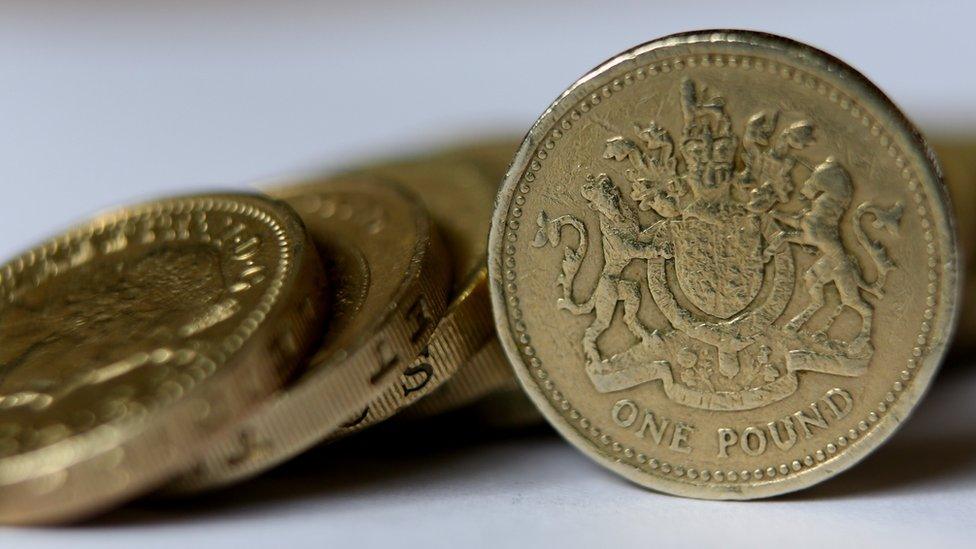Sterling’s had a weedy day – and it’s not all down to Boris Johnson
- Published
- comments

Sterling is trading at a seven-year low against the dollar.
Cue klaxons warning of increased currency and market volatility as Britain starts on the four month journey to a referendum on whether to remain in or leave the European Union.
To an extent sterling's weedy day is down to markets "pricing in" the chance of Britain leaving the EU.
In the short term at least, many market participants believe a "Brexit" would lead to a weaker currency as worries about Britain's £229bn annual trade with the EU and the possibility of new trade barriers heave into view.
Bad news?
The credit rating agency, Moody's, has suggested that Britain leaving the EU would be "credit negative", arguing that an exit could affect foreign investment in the UK, nearly half of which comes from the EU.
The polls are close enough to make the possibility of exit very real in the minds of traders who don't want to be left on the wrong side of a currency deal.
So, sell sterling - reducing the value of the currency.
Of course, a weaker currency is not simply "bad news". It can be very good news for exporters.
And many that back Britain leaving the EU say a Brexit would be good for the UK economy as free trade deals with other large world economies would be easier to negotiate.
If there then followed a medium term economic boost, sterling would soon recover its value.
Traders react
This morning has been the first time the currency markets have been able to react to a weekend full of significant referendum news.
Don't forget, when the markets closed on Friday night, David Cameron had not secured the final referendum deal; no official date had been set for the vote and neither of the Conservative big hitters, Michael Gove and Boris Johnson, had declared for the "leave" campaign.
In the eyes of the markets, each of these events has made the possibility of the UK leaving the EU more real.
And it has certainly focused minds - hence the rapid decline of sterling.
Other factors
There are other factors at play.
The dollar has had a strong recent run against the euro and the Swiss franc as well as sterling.
That's down to the Federal Reserve's decision to raise interest rates in December and signal that it may do again during 2016.
Confidence in the US economy may not be boundless, but it is stronger than confidence in the eurozone.
At the same time the European Central Bank and the Bank of England have been sending out very doveish messages on interest rate rises.
Which many economists now believe won't happen in the UK until next year, or even 2018.
A low interest rate environment usually leads to weaker currency valuations.
Sterling's weedy day is down to a number of factors.
Yes, the referendum is one of them.
But other global economic issues are also weighing heavily on the value of the UK currency.